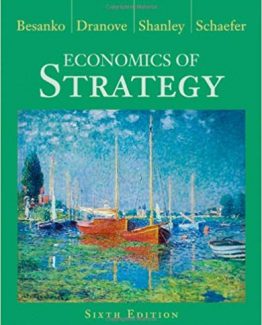Algorithmic Trading: Winning Strategies and Their Rationale by Ernie Chan, ISBN-13: 978-1118460146
[PDF eBook eTextbook]
- Publisher: Wiley; 1st edition (May 28, 2013)
- Language: English
- 224 pages
- ISBN-10: 9781118460146
- ISBN-13: 978-1118460146
In his well-received first book Quantitative Trading, Dr. Ernest Chan addressed the essential techniques an algorithmic trader needs to succeed at this demanding endeavor. While some useful example strategies were presented throughout, they were not the main focus of the book.
With this in mind, Dr. Chan has created a practical guide to algorithmic trading strategies that can be readily implemented by both retail and institutional traders alike. More than an academic treatise on financial theory, Algorithmic Trading is an accessible resource that blends some of the most useful financial research done in the last few decades with valuable insights Dr. Chan has gained from actually exploiting some of those theories in live trading.
Engaging and informative, Algorithmic Trading skillfully covers a wide array of strategies. Broadly divided into the mean-reverting and momentum camps, it lays out standard techniques for trading each category of strategies and, equally important, the fundamental reasons why a strategy should work. The emphasis throughout is on simple and linear strategies, as an antidote to the over-fitting and data-snooping biases that often plague complex strategies. Along the way, it provides comprehensive coverage of:
- Choosing the right automated execution platform as well as a backtesting platform that will allow you to reduce or eliminate common pitfalls associated with algorithmic trading strategies
- Multiple statistical techniques for detecting “time series” mean reversion or stationarity, and for detecting cointegration of a portfolio of instruments
- Simple techniques for trading mean-reverting portfolios—linear, Bollinger band, and Kalman filter—and whether using raw prices, log prices, or ratios make the most sense as inputs to these tests and strategies
- Mean-reverting strategies for stocks, ETFs, currencies, and futures calendar and intermarket spreads
- The four main drivers of momentum in stocks and futures, and strategies that can extract time series and cross sectional momentum
- Newer momentum strategies based on news events and sentiment, leveraged ETFs, order flow, and high-frequency trading
- Issues involving risk and money management based on the Kelly formula, but tempered with the author’s practical experience in risk management involving black swans, Constant Proportion Portfolio Insurance, and stop losses
Mathematics and software are the twin languages of algorithmic trading. This book stays true to that view by using a level of mathematics that allows for a more precise discussion of the concepts involved in financial markets. And it includes illustrative examples that are built around MATLAB© codes, which are available for download.
While Algorithmic Trading contains an abundance of strategies that will be attractive to both independent and institutional traders, it is not a step-by-step guide to implementing them. It offers a realistic assessment of common algorithmic trading techniques and can help serious traders further refine their skills in this field.
Table of Contents:
Preface ix
Chapter 1 Backtesting and Automated Execution 1
Chapter 2 The Basics of Mean Reversion 39
Chapter 3 Implementing Mean Reversion Strategies 63
Chapter 4 Mean Reversion of Stocks and ETFs 87
Chapter 5 Mean Reversion of Currencies and Futures 107
Chapter 6 Interday Momentum Strategies 133
Chapter 7 Intraday Momentum Strategies 155
Chapter 8 Risk Management 169
Conclusion 187
Bibliography 191
About the Author 197
About the Website 199
Index 201
Ernest P. Chan is the Managing Member of QTS Capital Management, LLC. He has worked for various investment banks (Morgan Stanley, Credit Suisse, Maple) and hedge funds (Mapleridge, Millennium Partners, MANE) since 1997. Chan received his PhD in physics from Cornell University and was a member of IBM’s Human Language Technologies group before joining the financial industry. He was a cofounder and principal of EXP Capital Management, LLC, a Chicago-based investment firm. Chan is also the author of Quantitative Trading: How to Build Your Own Algorithmic Trading Business (Wiley) and a popular financial blogger at http://epchan.blogspot.com.
What makes us different?
• Instant Download
• Always Competitive Pricing
• 100% Privacy
• FREE Sample Available
• 24-7 LIVE Customer Support






Reviews
There are no reviews yet.